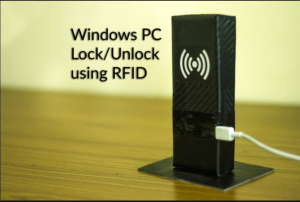The hospitality industry is undergoing a significant transformation, driven by technological advancements that enhance guest experiences and streamline operations. From AI-driven services to smart room technology, innovative solutions are redefining what it means to provide exceptional hospitality. This post explores three key areas where technology is making a profound impact: personalized guest experiences, operational efficiency, and the future of technology in hospitality.
1. Personalized Guest Experiences: Tailoring Stays to Individual Preferences
In the cutthroat world of hospitality today, outstanding visitor experiences depend heavily on individuality. Thanks to technology, hotels and resorts can now provide customized services that are suited to the unique requirements and tastes of each visitor.
Artificial Intelligence and Machine Learning
Hotel guest interactions are undergoing a transformation thanks to artificial intelligence and machine learning. AI-powered chatbots and virtual assistants respond to visitor questions instantly, make suggestions, and handle problems in real time. By using past encounters as a basis for improvement, these tools become more precise and efficient, resulting in a more smooth and customized experience.
Data-Driven Personalization
Hotels are customizing their services and offerings by utilizing guest data. Hotels may tailor room settings, suggest activities, and provide tailored promos by evaluating data from prior stays, preferences, and social media connections. For instance, if a visitor often asks for hypoallergenic pillows, the hotel can arrange their room ahead of time with these conveniences when they arrive.
Mobile Apps and In-Room Technology

Mobile apps are becoming essential tools for enhancing guest experiences. Guests can use apps to check-in/check-out, order room service, control room settings, and even unlock their doors via digital keys. In-room technology such as smart thermostats and voice-controlled assistants further enhances convenience, allowing guests to adjust their environment and access information with ease.
2. Operational Efficiency: Streamlining Hotel Management
Technology is not only enhancing guest experiences but also improving the efficiency of hotel operations. Automation and advanced systems are helping hotels manage their resources better, reduce costs, and increase productivity.
Property Management Systems (PMS)
Modern PMS solutions integrate various aspects of hotel management, including reservations, check-in/check-out processes, and housekeeping. These systems enable staff to access real-time data, manage bookings efficiently, and coordinate with different departments seamlessly. The result is a smoother operation and a better overall guest experience.
Energy Management Systems (EMS)
EMS technologies are helping hotels reduce their environmental footprint and operational costs. By using smart sensors and data analytics, hotels can optimize energy usage for lighting, heating, and cooling. These systems adjust settings based on occupancy and weather conditions, leading to significant savings on energy bills and a more sustainable operation.
Robotics and Automation
Robots and automated systems are making their way into hospitality settings, enhancing efficiency and guest interactions. For instance, robot concierges can assist with check-in, provide information, and deliver amenities to guest rooms. Automated cleaning systems and self-service kiosks further streamline operations, allowing staff to focus on providing high-quality service.
3. The Future of Technology in Hospitality: Trends and Innovations
As technology continues to evolve, the future of hospitality promises even more exciting innovations that will further elevate guest experiences and operational efficiency.
Virtual and Augmented Reality
Virtual reality (VR) and augmented reality (AR) are set to transform the way guests explore and interact with their surroundings. Hotels are beginning to use VR to offer virtual tours of their properties, allowing potential guests to experience rooms and amenities before booking. AR can enhance in-room experiences by providing interactive content and information through mobile devices or AR glasses.
Blockchain and Secure Transactions
Blockchain technology has the potential to revolutionize guest transactions and data security. By providing a decentralized and secure platform for processing payments and managing bookings, blockchain can enhance trust and transparency in the hospitality industry. Additionally, it can streamline loyalty programs and reward systems, offering guests a more seamless and secure experience.
Enhanced Connectivity and IoT
The Internet of Things (IoT) is set to further integrate technology into every aspect of the guest experience. IoT devices can connect various elements of a hotel’s infrastructure, from room controls to guest services, creating a more interconnected and responsive environment. Enhanced connectivity will enable more sophisticated and personalized interactions, ensuring a more cohesive and satisfying guest experience.
In summary
The hotel sector is changing as a result of innovative technology, which is boosting operational effectiveness and visitor experiences. Technology is improving every aspect of hospitality, from AI-powered personalized services to sophisticated systems that optimize workflow. In order to ensure that the travel industry keeps evolving and meets the constantly changing expectations of travellers, emerging developments like VR, blockchain, and IoT promise to elevate guest experiences to new levels. Accepting these technologies would improve the visitor experience while also putting hotels and resorts at the forefront of the technological transformation in the hospitality sector.






